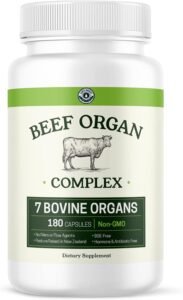
The carnivore diet and alcohol can be a tricky combination. While pure spirits like whiskey and vodka are low in carbs, they can affect ketosis and hydration. Moderation is key, as alcohol may lead to cravings for non-carnivore foods. Understanding its impact helps maintain diet goals while enjoying occasional drinks.
As the popularity of the carnivore diet continues to grow, more people are exploring its potential health benefits. However, one common question that arises is whether drinking alcoholic beverages can coexist with the strict guidelines of a carnivore lifestyle. In this article, we will look into the relationship between alcohol and the carnivore diet, examining how different types of alcoholic beverages affect the body, the potential benefits and drawbacks of consuming alcohol on this diet, and recommendations for those who choose to indulge.
Understanding the Carnivore Diet
The carnivore diet is a dietary regimen that focuses exclusively on animal-based foods. Followers of this diet consume meat, fish, eggs, and other animal products while avoiding all plant-based foods, including fruits, vegetables, grains, and legumes. The primary goal of the carnivore diet is to eliminate potential dietary irritants and allergens, thus promoting better digestion, improved mental clarity, and overall health.
Alcohol and the Carnivore Diet: A Complex Relationship
Alcoholic beverages, by their very nature, are derived from plant sources such as grains, fruits, and vegetables. This presents a challenge for those adhering to a strict carnivore diet. Despite this, many individuals on the carnivore diet wonder if there is room for occasional alcohol consumption without compromising their dietary goals.
1. Types of Alcoholic Beverages
To understand the impact of alcohol on the carnivore diet, it’s important to examine the various types of alcoholic beverages and their ingredients:
- Beer: Made from grains such as barley, wheat, and hops, beer is generally considered off-limits for those on the carnivore diet due to its high carbohydrate content and plant-based ingredients.
- Wine: Produced from fermented grapes, wine contains naturally occurring sugars and plant compounds. While it is not strictly carnivore, some people may choose to include moderate amounts of wine in their diet.
- Spirits: Distilled spirits like vodka, whiskey, rum, and gin are made from various plant sources but undergo a distillation process that removes most impurities and carbohydrates. These beverages are often considered the most “carnivore-friendly” options, particularly when consumed neat or with water.
2. The Effects of Alcohol on the Body
Alcohol consumption can have various effects on the body, many of which are influenced by one’s dietary habits. Some of the primary considerations for those on a carnivore diet include:
- Carbohydrate and Sugar Content: Alcoholic beverages, especially beer, and wine, contain carbohydrates and sugars that can disrupt ketosis, a metabolic state often sought by carnivore dieters to enhance fat-burning and mental clarity.
- Liver Function: The liver plays a crucial role in metabolizing alcohol. Heavy alcohol consumption can lead to liver damage and impede the organ’s ability to process other nutrients efficiently.
- Hydration: Alcohol acts as a diuretic, potentially leading to dehydration. Proper hydration is essential for overall health and can be particularly challenging for those on the carnivore diet due to the elimination of hydrating fruits and vegetables.
- Nutrient Absorption: Alcohol can interfere with the absorption of essential nutrients, which is a concern for those relying solely on animal-based foods for their nutritional needs.
Benefits and Drawbacks of Alcohol Consumption on a Carnivore Diet
While some individuals on the carnivore diet choose to abstain from alcohol altogether, others may wish to enjoy an occasional drink. Here, we explore the potential benefits and drawbacks of moderate alcohol consumption within the context of a carnivore lifestyle.
Potential Benefits
- Social Enjoyment: Alcohol is often consumed in social settings, and moderate consumption can enhance social interactions and enjoyment.
- Relaxation: A moderate amount of alcohol can promote relaxation and stress relief, which can be beneficial for overall mental health.
- Antioxidants: Certain alcoholic beverages, particularly red wine, contain antioxidants such as resveratrol, which may offer health benefits when consumed in moderation.
Potential Drawbacks
- Disruption of Ketosis: For those aiming to maintain a state of ketosis, alcohol consumption, particularly from carbohydrate-rich sources, can disrupt this metabolic state.
- Impact on Weight Loss: Alcohol contains empty calories, which can hinder weight loss efforts by adding to daily caloric intake without providing essential nutrients.
- Health Risks: Regular and excessive alcohol consumption is associated with various health risks, including liver disease, cardiovascular issues, and increased cancer risk.
Recommendations for Carnivore Dieters Who Choose to Drink
For those on the carnivore diet who wish to enjoy an occasional alcoholic beverage, it is essential to make informed choices and consume alcohol in a way that aligns with their dietary goals. Here are some recommendations:
1. Choose Carnivore-Friendly Alcohol
- Opt for Distilled Spirits: Spirits like vodka, gin, whiskey, and rum have minimal carbohydrates and sugars. Consume them neat or with water or ice to avoid added sugars and mixers.
- Limit Wine Consumption: If you choose to drink wine, opt for dry varieties with lower sugar content, and limit intake to avoid disrupting ketosis.
2. Moderation is Key
- Set Limits: Establish a reasonable limit for alcohol consumption to prevent overindulgence and its associated health risks.
- Hydrate: Drink plenty of water alongside alcoholic beverages to mitigate dehydration and support overall hydration.
3. Timing and Context
- Consume with Meals: Drinking alcohol with a meal can slow the absorption of alcohol and reduce its impact on blood sugar levels.
- Special Occasions: Reserve alcohol consumption for special occasions rather than making it a regular part of your routine.
The Impact of Alcohol on the Carnivore Experience
Understanding the effects of alcohol on the carnivore diet can help individuals make informed decisions about their consumption. While moderate alcohol consumption can be part of a balanced lifestyle, it is essential to recognize the potential impacts on ketosis, weight loss, and overall health.
Ketosis and Alcohol
For those aiming to maintain ketosis, careful consideration is required when consuming alcohol. The body prioritizes metabolizing alcohol over other nutrients, which can temporarily halt ketosis. Choosing low-carbohydrate alcohol options and consuming them in moderation can help minimize disruptions.
Weight Loss and Alcohol
Weight loss is a common goal for many individuals on the carnivore diet. Alcohol contains calories that do not provide nutritional value, which can hinder weight loss efforts. Those focused on weight loss may find it beneficial to limit or avoid alcohol consumption to achieve their goals more effectively.
Health and Wellness
Maintaining overall health and wellness is paramount for those on the carnivore diet. Excessive alcohol consumption can negate many of the health benefits associated with this diet, including improved digestion, mental clarity, and reduced inflammation. Moderation and mindful consumption are crucial to balancing the enjoyment of alcohol with the pursuit of optimal health.
Expert Insights on Alcohol and the Carnivore Diet
Incorporating expert opinions can provide valuable perspectives on the relationship between alcohol and the carnivore diet. Here are some quotes from experts in the field:
- Dr. Paul Saladino, MD: “While the carnivore diet emphasizes the elimination of plant-based toxins, moderate alcohol consumption can be enjoyed occasionally if it aligns with an individual’s health goals. The key is moderation and choosing the right types of alcohol.”
- Dr.Shawn Baker, MD: “Alcohol can be part of a carnivore lifestyle, but it’s important to recognize that it may affect ketosis and overall health. Distilled spirits in moderation are generally the best choice for those on the carnivore diet.”
- Dr. Ken Berry, MD: “For those following a carnivore diet, alcohol should be consumed mindfully. The focus should be on minimizing carbohydrates and choosing beverages that align with the dietary principles of the carnivore lifestyle.”
The carnivore diet, with its focus on animal-based foods and elimination of plant-based foods, presents unique considerations when it comes to alcohol consumption. While some individuals may choose to abstain from alcohol altogether, others can incorporate occasional alcohol consumption into their carnivore lifestyle with mindful choices and moderation.
Understanding the types of alcohol, their effects on the body, and the potential benefits and drawbacks of drinking can help individuals make informed decisions. For those on the carnivore diet, distilled spirits are generally the most compatible option, while beer and wine should be consumed with caution due to their carbohydrate and sugar content.
Ultimately, the decision to include alcohol in a carnivore diet is a personal one, and it is essential to prioritize overall health and wellness. By making informed choices and practicing moderation, individuals can enjoy the social and relaxation benefits of alcohol without compromising their dietary goals.
As with any dietary choice, it is advisable to consult with healthcare professionals or nutrition experts to tailor the carnivore diet to individual needs and health goals. With the right approach, the carnivore diet can offer a sustainable and health-promoting lifestyle, even with the occasional inclusion of alcohol.
Daddy’s Choice

A balanced blend of beef organs contains liver, heart, kidney, pancreas, lung, bone marrow, and spleen. Get over 3g of organ meat per serving. Perfect addition to the carnivore diet.
READ MORE
- The “Meat Monk” Routine: A Minimalistic, Monk-Style Daily Schedule Built Around Beef and Meditation
- Junk Food Jailbreak: Carnivore Keys to Freedom
- Pregnancy and the Carnivore Diet: Is It a Good Idea?
- When Is It Time to Stop Listening to Carnivore Influencers?
- Why the Carnivore Diet Differs From Location to Location: Why There Is No One-Size-Fits-All Rule
Exclusive Offer